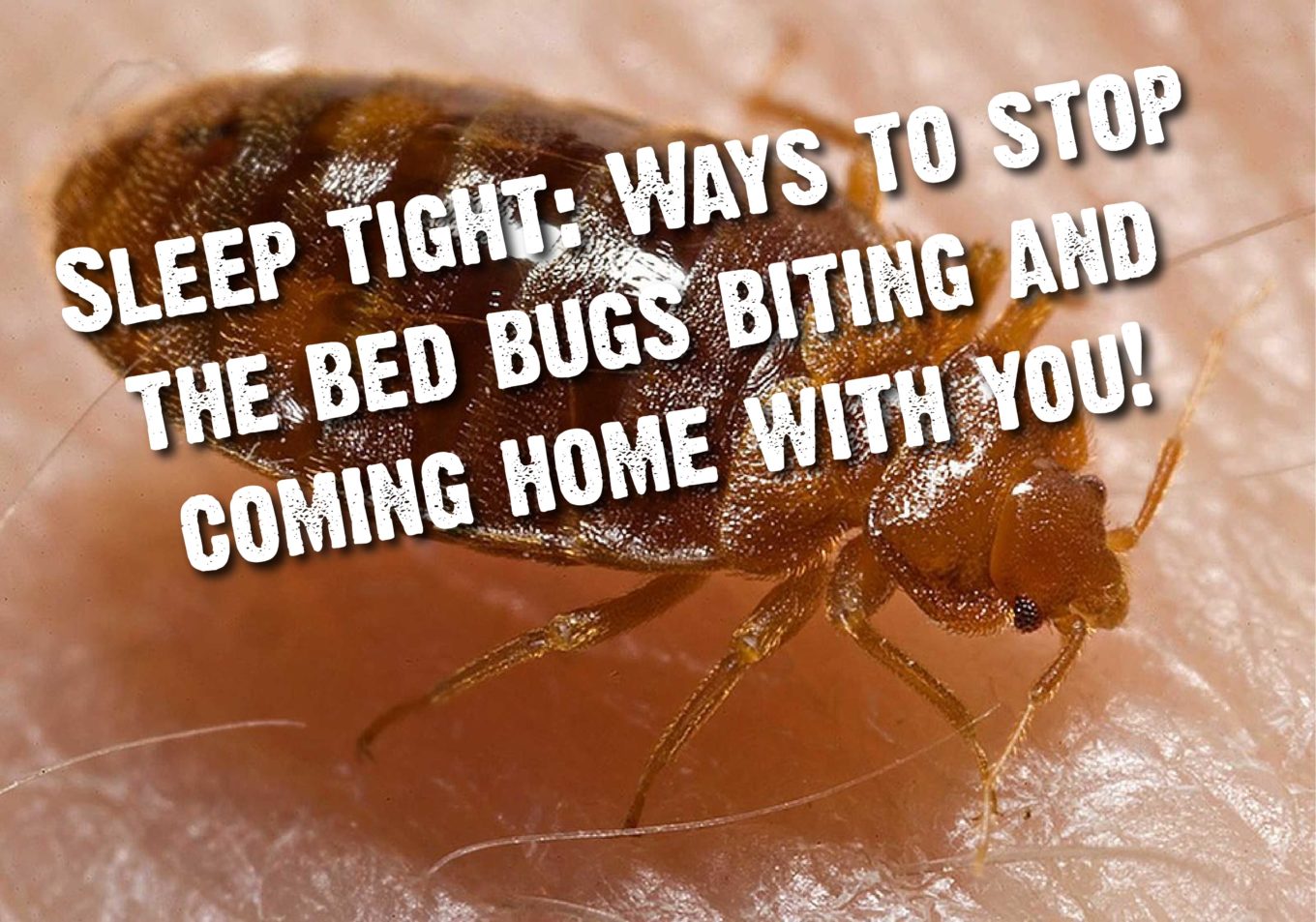
October 19th, 2018
Sleep tight: Ways to stop the bed bugs biting and coming home with you!
By ARCTEC
Unfortunately bed bugs aren’t just a rhyme used to encourage children to sleep tight. They can be found in habitations in many parts of the world, anywhere from peoples’ homes to 5-star hotels and even on aeroplanes. When you consider that bed bugs have the ability to survive large variations in temperature and long periods without feeding, and that conventional insecticide treatments struggle to kill them due to their ability to hide so effectively, it’s no surprise that bed bug infestations appear to be on the rise.
Adult bed bugs are small (<0.5 cm long) reddish-brown insects of the Cimicidae family. The two species your most likely to come across are Cimex hemipterus, the tropical bed bug, and Cimex lectularius, the common bed bug more at home in temperate regions.
If you are planning to stay in a hotel, B&B or hostel, read the reviews of the place you’re thinking of booking. If there are reports of bed bugs or unexplained bites, then give it a miss.
When you enter your room, the first thing you may notice about a room with heavy bed bug infestation is a musty smell. This has been likened to the smell of sickly almond, coriander or rotten raspberries. If you notice this a thorough check of the bed and other furniture or soft furnishings is recommended. It’s unlikely you’ll actually see bed bugs unless there’s a very heavy infestation, so instead you’re looking for the indirect signs, such as blood spots, bed bug poo or moult casings. Bed bugs like to hide together, and preferably in small dark crevices, holes or cracks. So focus in places like this to start.
If you discover any of these signs ask to move rooms straight away or consider changing to another hostel or hotel. Just because one room in a hotel or hostel has bed bugs does not mean every room will, but bear in mind they are able to travel between rooms through air vents and cracks in flooring. Importantly, don’t unpack your bags as you might help to spread them.
If you receive any unexplained or unusual bites from your travels, particularly if they are in a row in your body or in an area with low numbers of mosquitoes you should take extra precautions when you return. Put all of your clothes and anything that can go in the washing machine in as hot a wash as they can handle, preferably at 60°C or higher. If you have a freezer big enough that can get down to -20°C, then place your suitcase in a bin bag and leave it in there for more than 3 days. If this is not possible then store your suitcase in a strong bin bag and seal it between uses when at home. You should also look out for unexplained bites for the next month; bed bug bites can take a while to swell up and become itchy for some individuals (up to 3 or 4 days). If unexplained bites persist then it may be time to check your mattress and, if you find signs of an infestation, possibly call in pest control.
References